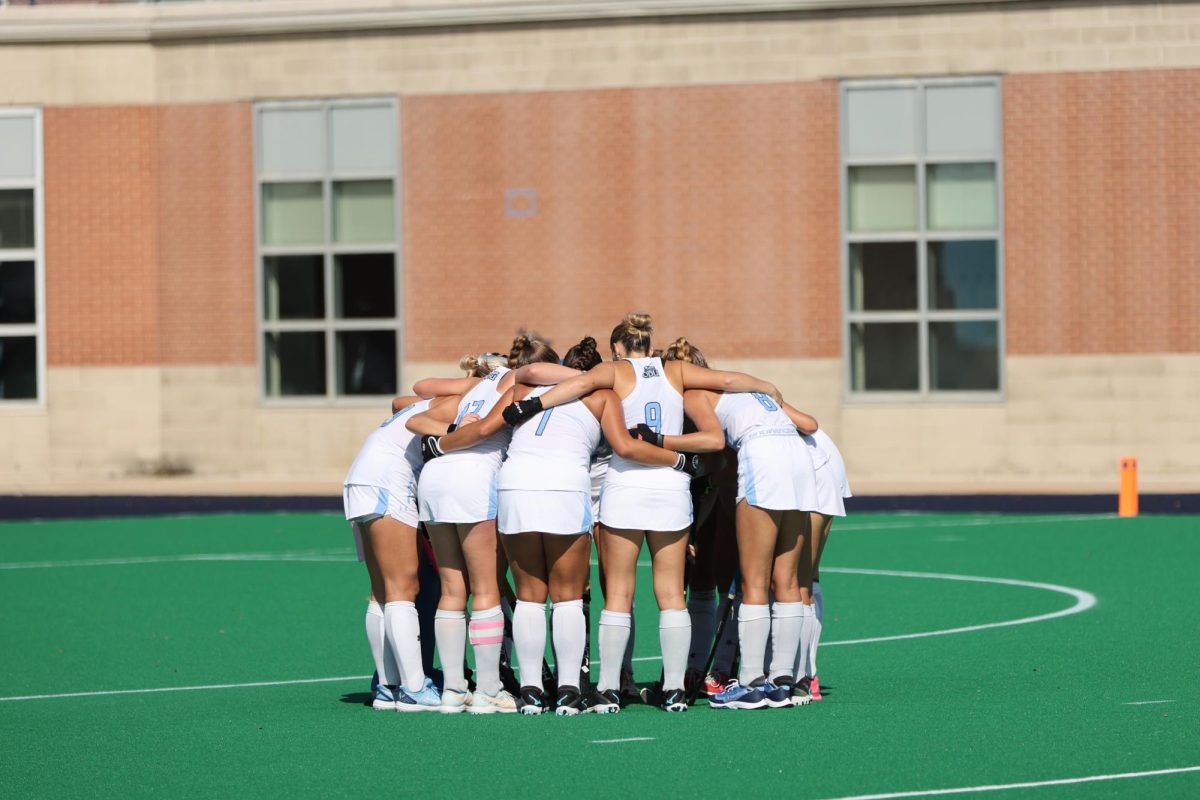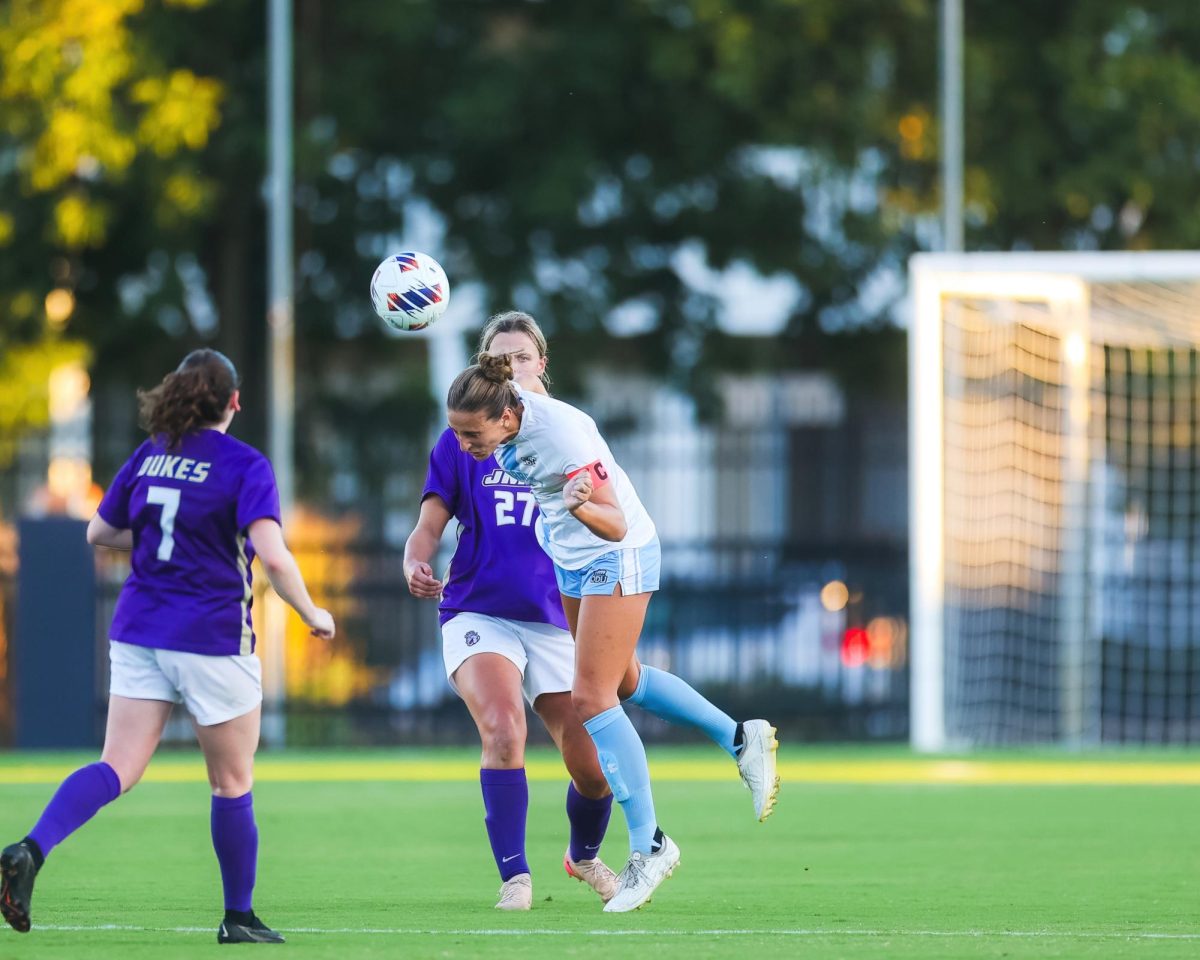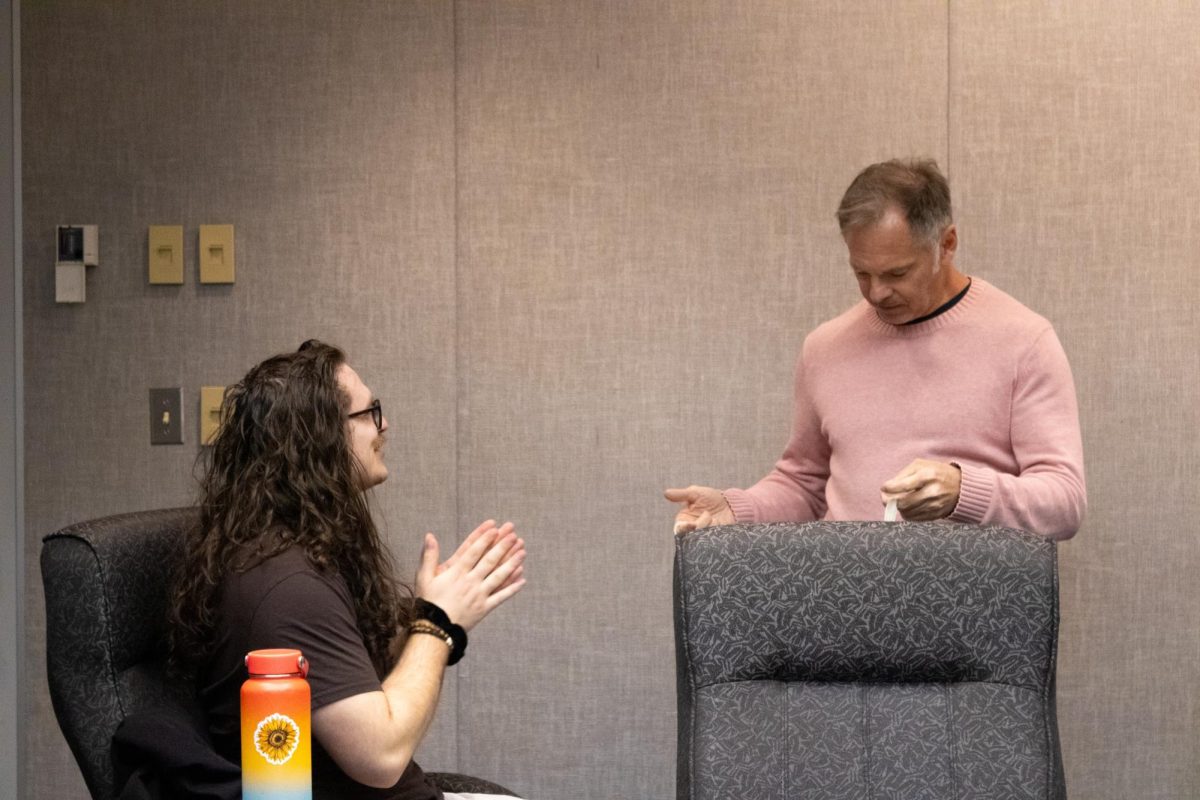On Nov. 18, ODU held the third General Education Reform Initiative open forum of the semester, featuring a Q&A panel of seven ODU faculty members involved in the initiative.
The General Education Reform Initiative is seeking to reevaluate and restructure the general education curriculums while considering student and faculty input. The executive committee has been hosting open forums throughout the fall semester to allow everyone to be in the know about the initiative’s plans.
“The first two [forums] were about people sharing information back to us about what they hope we can do in gen. ed.,” said Jenn Sloggie, a member of the executive committee. “And this final one was us stepping back and letting the members of the reading groups speak about what they’ve been doing this fall.”
The third open forum took the form of a panel discussion and a Q&A session where seven faculty members discussed what they had researched in reading groups that encompassed each component of the general education experience: first-year experiences, general education purpose and outcomes, student learning goals and objectives, high impact practices, faculty development and resources, and education models and structures.
Amy M. Johnson, a member of the General Education Reform Initiative executive committee, introduced the panel by delving into student and faculty opinions and concerns about what the current curriculum lacks. Staff concerns include a lack of clear support for faculty, a less-than-ideal delivery of an outdated curriculum and logistical and communication challenges. Students reported similar concerns, highlighting that the curriculum lacks cohesion and does not integrate with their learning in meaningful ways.
Johnson highlights that the committee and the initiative are committed to creating a distinct ODU experience, approaching the challenge from a place of enthusiasm and excitement and focusing on teaching students critical thinking, cultural competency, empathy and adaptability.
As the various panelists presented their findings from the research they conducted over the past few months, the biggest component for a successful model of the general education curriculum is an engaged, full-time faculty, which means that the lack of faculty support and resources are substantial obstacles.
Megan Mize, who researched faculty development and resources, said that the key finding of her research was that the entire faculty needs to share in teaching and developing the general education curriculum, but oftentimes, the institutional culture penalizes involvement in the general education classes.
Annette Finley-Crosswhite, who researched faculty development and resources alongside Mize, spoke about faculty support as well. She believes that there needs to be a focus on helping faculty understand how to help students succeed.
“What decisions are we making to help teachers learn to help students learn?” said Finley-Crosswhite.
Another component is to find more ways to engage with the students. The panel emphasized teaching skills and values beyond what is marketable for jobs, as well as fostering an inclusive environment full of opportunities. Lanah Stafford, who studied high impact practices, highlighted that investing in undergraduate research programs opened more doors for students of color to pursue PhDs and become faculty members themselves.
Katia Grillo, who researched general education models and structures, acknowledged that the current model is outdated when speaking about how she analyzed the structures that other universities had implemented to identify their strengths and challenges.
“There is no one-size-fits-all in education,” she said.
The committee announced no concrete changes to the general education model at the forum, but they expect to have a more comprehensive plan by mid-December.
When asked about the future of the General Education Reform Initiative, Sloggie said that the next step of the initiative was to approve a steering committee to be the decision-making body for the changes to the general education curriculum. The goal is to keep receiving input from the faculty, staff and students of ODU.
Throughout the reform process, those involved are committed to receiving student input. The open forums were hosted with the hope and intent that students would show up and share their opinions and experiences. Many students attended the open forum alongside the staff and faculty.
“Everything we should be doing should be about student engagement and student success,” said Sloggie.
The General Education Reform Initiative is still an ongoing process, with a spring semester kick-off event scheduled for Jan. 23, 2025. According to Sloggie, the Faculty Senate is set to approve the steering committee’s proposed changes by spring 2027, so that the curriculum changes can be implemented for the fall 2027 semester.















